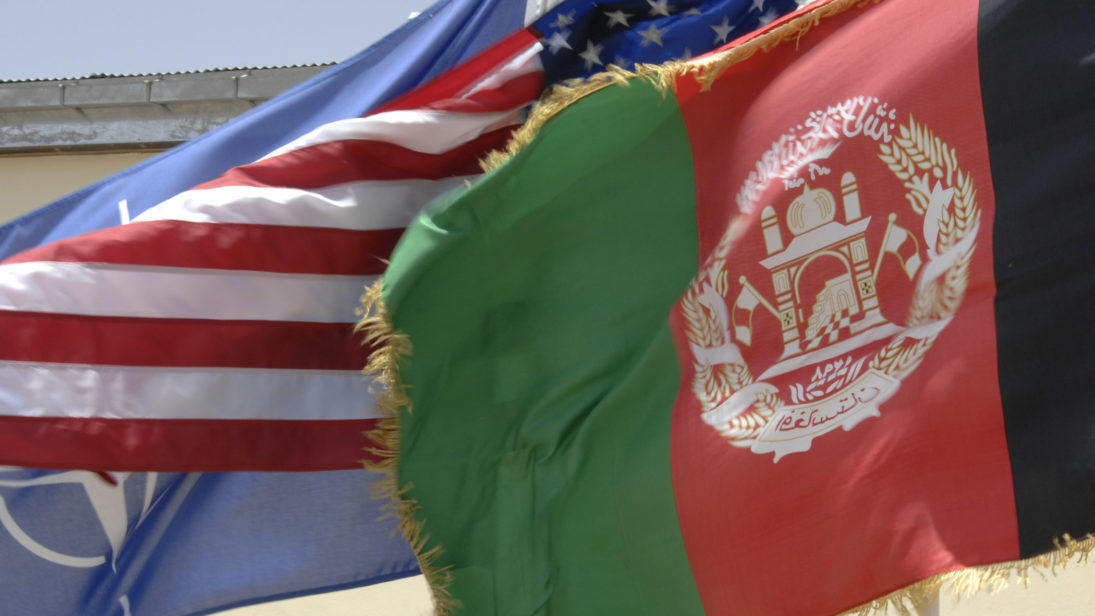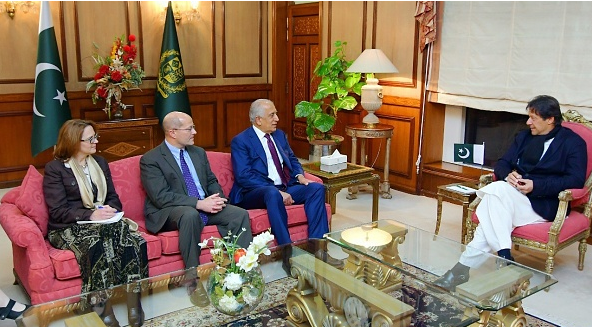
The six-day long deliberations between the Afghan Taliban and U.S. negotiators in Qatar at the end of January ended in an in principle agreement to a framework of a deal that would lead to a withdrawal of U.S. forces from Afghanistan. This is being seen as a major breakthrough toward ending the decades-long conflict in Afghanistan. Political activities began heating up in July last year when a delegation led by U.S. Deputy Assistant Secretary of State for South and Central Asian Affairs Ambassador Alice Wells held direct talks with the Taliban leadership. Speaking at the United States Institute of Peace last Friday in Washington, U.S. Special Representative for Afghanistan Reconciliation Zalmay Khalilzad said that his hope was that a peace deal with relevant stakeholders, including the Taliban, would be reached before the Afghan presidential elections in July this year, though he acknowledged that a lot remained to be done. Considering these significant developments, it is important to assess how they would affect regional stakeholders. The end of the Afghan conflict will not only be a turning point for a war-ravaged Afghanistan, but also present both opportunities and challenges for regional actors, particularly Pakistan.
Potential Positive Outcomes
Peace and stability in Afghanistan can generate significant economic opportunities for Pakistan. For instance, a peaceful Afghanistan would facilitate Pakistan’s direct land access to Central Asia and its abundant natural resources. Also, the denial of space to terrorists operating from Afghan territory may help mitigate some of the security concerns surrounding the multi-billion dollar China-Pakistan Economic Corridor (CPEC) project, on which Pakistan’s faltering economy is dependent.
Moreover, Pakistan’s role in the Afghan peace and reconciliation process offers a window of opportunity to mend its frosty relations with the United States. Pakistan’s role as a facilitator could wash away the label it has earned as a foul player for its alleged double game in the war on terror. The country’s serious efforts for building peace in Afghanistan may also help get its name out of the grey list of the Financial Action Task Force (FATF), over which the United States has significant leverage. Being in Washington’s good books may also help Pakistan secure funds from the International Monetary Fund to boost its economy.
In addition, an Islamabad-friendly government in Kabul in the form of some sort of Taliban power-sharing in the governance setup would help bolster Pakistan’s efforts to counter India’s rising influence in Afghanistan. Pakistan favoring an Afghan-owned and Afghan-led political solution can bring its relationship with Kabul back on track and mitigate India’s leverage/influence in Afghanistan.

Pakistan has already suffered severely, in terms of a loss of both men and resources, in its fight against terrorism—it has lost tens of thousand of civilians during the War on Terror and according to estimates by the Ministry of Finance, the direct and indirect costs incurred by Pakistan between October 2011 and September 2017 due to terrorism incidents were over USD 123 billion. Thus, the country will earnestly support any move that ensures durable peace in the region. This is why Islamabad has supported recent efforts by Washington to strike a peace deal in Afghanistan, despite recent tensions in the U.S.-Pak relationship. Pakistan re-initiated overtures to the Taliban after President Trump wrote a letter to Prime Minister Imran Khan seeking his help in bringing the Taliban to the negotiating table. In addition, Pakistan’s foreign minister Shah Mehmood Qureshi traveled to Afghanistan, Iran, China and Russia and later visited Qatar to promote a regional approach for a negotiated settlement to the dispute.
A Range of Risks
Though Islamabad is well-positioned to exert pressure on the Pakistan-based Afghan Taliban to have meaningful dialogue with the Afghan government and other leading stakeholders to reach a mutually-acceptable solution to the conflict, it must be careful to manage or prepare for the consequences of a U.S. withdrawal. Pakistan hosts around 1.4 million Afghan refugees, as per September 2018 figures, and can hardly accommodate a mass exodus across the Pakistani border triggered by any political uncertainty in Afghanistan.
This uncertainty could also create space for non-state actors to exploit the situation. The evil nexus between the Afghan-based Pakistani Taliban and the Islamic State-Khorasan Province (ISKP) may destabilize both eastern Afghanistan and the newly-merged tribal districts of Pakistan along the Pak-Afghan border. To prevent this from happening, the deal should clearly demand the Taliban to dissociate itself from Al-Qaeda and to deny space to terrorist groups including the Pakistani Taliban currently operating on its soil. In addition, the international community, particularly the United States, should remain committed to the development and security of Afghanistan until the ISKP is ousted from the country. Besides border management, Pakistan should work together with Afghanistan to launch intelligence-based operations against ISKP in bordering areas.
Pakistan’s geostrategic location places it in the right position to determine the course of decisions that may shape the future governance setup in Afghanistan. Making this peace sustainable, however, would require Pakistan and other regional stakeholders to launch coordinated efforts to address the potential security threat after the withdrawal of U.S. troops from Afghanistan. History should not be repeated again. If the international community abandons Afghanistan this time, too, the entire region will bear the consequences.
***
Image 1: U.S. Air Force photo by Tech Sgt. Samara Scott via Flickr
Image 2: Prime Ministry of Pakistan/Handout/Anadolu Agency via Getty Images


